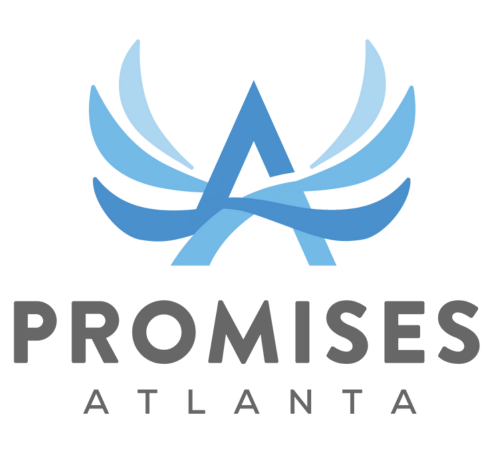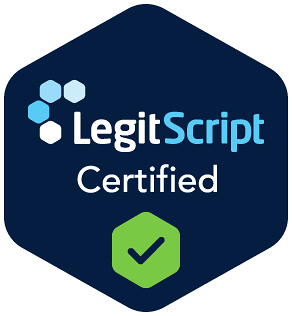Why do some people risk everything for one more chance to win? Gambling addiction isn’t just about money. It’s about emotions, stress, and how the brain responds to reward and risk. For many, it starts as entertainment but slowly becomes a habit they can’t control.
Promises Atlanta understands how complicated addiction can be. While we don’t offer specific gambling addiction treatment, our addiction treatment options and co-occurring disorders care can support people whose gambling behavior is connected to substance use, anxiety, or depression. Sometimes, gambling addiction leads to other addictions, or happens because of them. Understanding how it works is the first step toward healing.
Understanding gambling addiction
Definition and overview
Gambling addiction—also known as compulsive gambling or gambling disorder—is when someone can’t stop gambling, even when it causes serious problems. It might involve betting at casinos, online games, sports gambling, or even lottery tickets. Unlike someone who gambles occasionally for fun, a person with a gambling addiction feels a strong urge to keep going—chasing wins, hiding losses, and taking bigger risks over time.
The psychology behind gambling addiction
Gambling affects the brain’s reward system, much like drugs or alcohol. When a person wins, the brain releases dopamine, a “feel-good” chemical. This can create a cycle where the person keeps gambling to feel that rush again, even after losing. Over time, they may need to gamble more often or take bigger risks to get the same feeling. For some, gambling becomes a way to escape stress, anxiety, or sadness. That emotional escape can become addictive on its own.
Signs and symptoms of gambling addiction
Behavioral indicators
- Lying about gambling
- Spending more time or money than planned
- Chasing losses (trying to win back money)
- Borrowing money or selling items to gamble
- Skipping responsibilities to gamble
Emotional and psychological signs
- Anxiety or restlessness when not gambling
- Mood swings or irritability
- Feeling guilty or ashamed after gambling
- Denial that there’s a problem
Financial consequences
- Maxed-out credit cards
- Unpaid bills or late rent
- Secretive spending
- Relying on others for money
Identifying the signs of gambling addiction is a crucial step in helping yourself or a loved one begin the journey to recovery.
Causes and risk factors
Biological and genetic influences
Some people are more likely to develop gambling addiction because of their brain chemistry or family history. If a parent or sibling has an addiction, the risk is higher.
Environmental and social factors
Living near casinos, being part of social circles that gamble, or growing up in a home where gambling was common can increase risk.
Psychological triggers
Gambling can feel like an escape for people dealing with:
- Depression
- Anxiety
- Trauma
- Stress
- Boredom
This is why addressing mental health is a key part of gambling addiction recovery. Without proper mental health support, it’s difficult to break the cycle of addiction and build lasting habits for a healthier future.
The impact of gambling addiction
Personal and family relationships
Gambling addiction often leads to broken trust. Loved ones may feel hurt, betrayed, or confused. Arguments, secrecy, and emotional distance are common.
Professional and career implications
Work performance may suffer due to distraction, missed deadlines, or even theft. Some people lose jobs because of gambling-related issues.
Legal and financial repercussions
Gambling addiction can lead to:
- Debt or bankruptcy
- Legal trouble from theft or fraud
- Court-ordered treatment or financial restitution
Gambling addiction treatment options
Therapy and counseling approaches
Behavioral therapy helps individuals understand their gambling habits and provides tools to stop. It identifies triggers, breaks unhealthy behaviors, and builds healthier coping strategies.
Cognitive-behavioral therapy (CBT) is especially effective. It targets harmful thoughts like believing gambling will solve financial problems or bring relief and replaces them with healthier, realistic thinking. This approach offers a clear path to recovery by addressing both behavior and mindset.
Medication and medical interventions
Medications prescribed for conditions like anxiety, depression, or impulse control disorders can help manage gambling urges. They address mental health issues that contribute to compulsive gambling, such as stress, impulsivity, or emotional regulation.
For example, antidepressants can stabilize mood, while impulse control medications reduce gambling cravings. A doctor can evaluate your needs, monitor progress, and adjust treatment to keep it safe and effective. Medication works best when combined with therapy or support groups for a well-rounded recovery approach.
Support groups and community resources
Groups like Gamblers Anonymous (GA) offer connection and support from others in recovery. These programs often use a 12-step approach, but alternatives exist, too.
While we don’t treat gambling addiction directly, our programs at Promises Atlanta support individuals managing co-occurring issues—like anxiety, depression, or substance use—that may be connected to gambling behavior.
Steps to overcoming gambling addiction
Acknowledging the problem
Recovery starts with courage and honesty. Acknowledging the problem may be the toughest step, but it’s also the most transformative.
Seeking professional help
You don’t have to do this alone. Therapists, addiction specialists, and mental health professionals can guide you through personalized treatment.
Building a support network
A strong support system of family, friends, or peers in recovery can make all the difference in the journey toward healing. Having people who listen, understand, and encourage you can provide the motivation and reassurance needed to stay on track.
Recovery thrives in the strength of community, where shared experiences and mutual support create an environment of hope and resilience.
Strategies for gambling addiction recovery
Developing coping mechanisms
Healthy coping tools help replace the urge to gamble. These can include:
- Exercise
- Journaling
- Mindfulness and meditation
- Hobbies and creative activities
Relapse prevention techniques
Planning ahead is key. Learn how to avoid triggers like certain people, places, or emotions. Having a relapse plan helps you bounce back quickly if you slip.
Long-term recovery and maintenance
Recovery is a lifelong process. Staying connected to support groups, continuing therapy, and celebrating milestones helps build lasting success.
Resources for gambling addiction help
Hotlines and helplines
- National Problem Gambling Helpline: 1-800-GAMBLER
- SAMHSA National Helpline: 1-800-662-HELP
These free, confidential resources can connect you to treatment options and local services.
Online support and educational materials
Online tools can offer support, self-assessments, and education to help you better understand gambling addiction and your recovery options.
Moving forward from gambling addiction
Gambling addiction can impact every aspect of your life, but recovery is within reach with the proper support and treatment. Whether you’re dealing with gambling alone or navigating additional challenges like mental health issues or substance use, help is available.
At Promises Atlanta, our care teams specialize in addiction treatment options and support for co-occurring mental health conditions that often go hand-in-hand with gambling behavior. You don’t have to navigate this alone. Recovery starts with one small step. Call our team today at 888.488.6303 if you need help exploring treatment options, or contact us through our online form.




